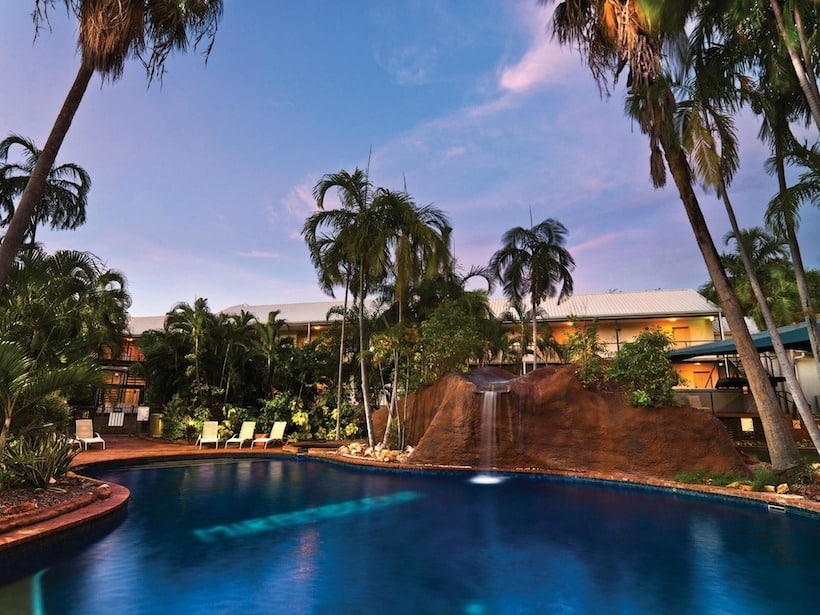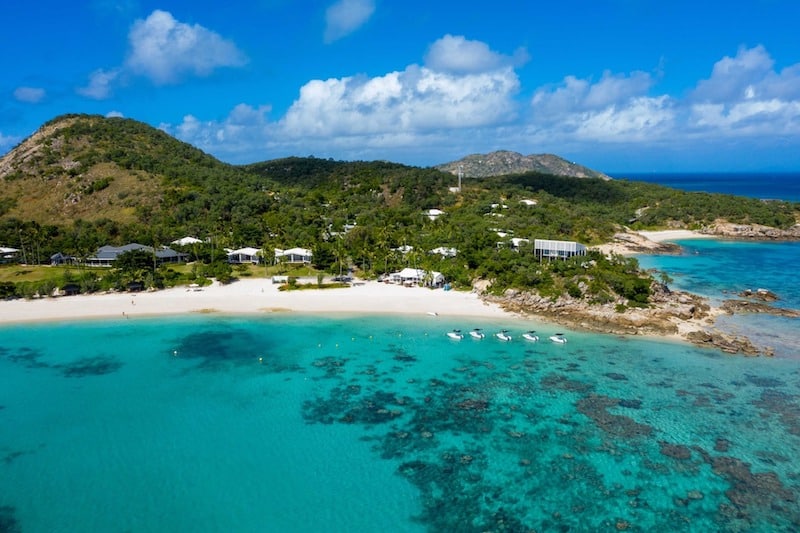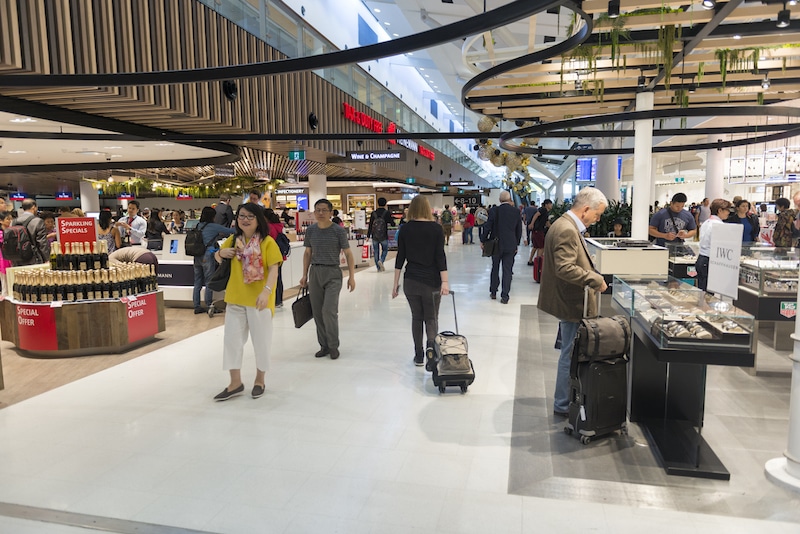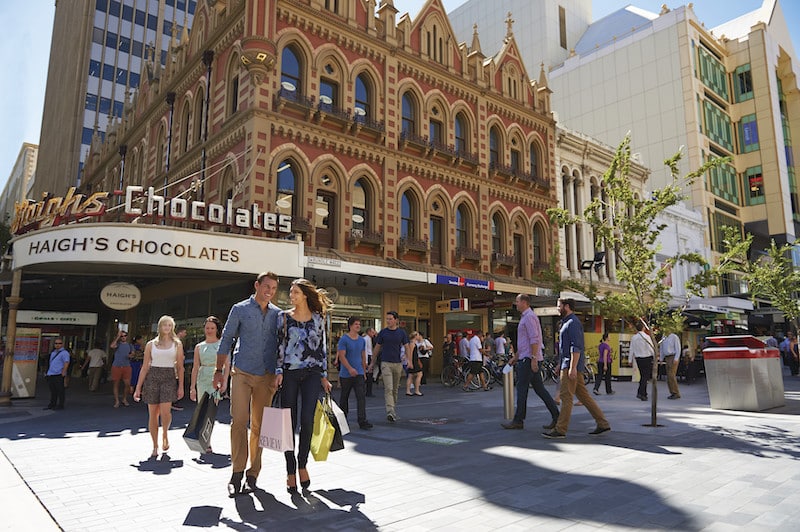Offshore Investors Tipped to Bet Big on Australian Tourism
View article on-line at theurbandeveloper.com
Phil Bartsch Hendy – Friday 18 February, 2022
Forget throwing another piddly shrimp on the barbie.
With the flinging open of Australia’s international tourism door after almost two years, CBRE’s Wayne Bunz has been busy preparing a property investment feast.
The veteran deal-maker is tipping the big money from abroad will be back at the table and betting big on Australia as a destination.
“Absolutely, that’s why I’m going to Singapore to do our first international roadshow in two years,” he says.
While the first post-pandemic overseas visitors are eating up Australia’s attractions, Bunz will be serving up more than half-a-billion dollars’ worth of its tourism and hospitality assets to hungry offshore investors.
“Australia has always been a favourite place, particularly for Asian, and American and European money,” he says.
“That was somewhat dampened over the past couple of years because there was so much unknown and people were taking a wait and see approach… a lot of companies reduced costs and reinvested in their existing properties.
“But now that international borders are opening up, Australia will be a strong focus for those foreign investors because we are politically and economically safe and, arguably, we have handled Covid better than most other countries.”
Some of them have already taken a well-calculated punt and started placing their bets.

Last year, in the depths of the country’s lockdowns and travel restrictions, Singaporean sovereign wealth fund GIC and Swiss-based global private equity firm Partners Group teamed with Melbourne-based fund manager Salter Brothers to buy the Travelodge portfolio for a record $620 million.
The deal—comprising 11 hotels with more than 2000 rooms—was the biggest hotel transaction in Australian history.
“The internationals are wanting exposure to Australia,” says McVay Real Estate managing partner Sam McVay, who negotiated the Travelodge deal.
“They have been looking for the past two years. Ever since the beginning of Covid, our inquiries have been up.
“But they want big purchases. For them to come down and make a $50-million purchase … it is not worth their time.
“They want to come to Australia and they want to invest in something that actually gives them scale. They’re making a bet on Australia and they want to place a proper bet.”
McVay says many of the international groups now seeking exposure to Australian tourism and hospitality assets are strategically looking to shift their investment gaze.
“A lot of these companies have traditionally invested a lot of money in China and Hong Kong but they’re not doing that anymore. They are nervous about the US and the returns in Japan and Singapore are very tight.
“So, on a risk-adjusted basis, Australia looks really good … and for the first time that we’ve seen, every single continent across every single buyer group running hard at Australian property.
“We’re setting ourselves up for a great period of investment in front of us. It’s coming and it’s going to be pretty exciting.”
Transaction volumes in Australia’s hotel market kicked up a gear last year despite the disruption of lockdowns and border closures, according to the Colliers 2022 hotels investment review.
A total of $2.87-billion worth of assets—the second highest year on record in terms of total volumes sold—traded across 60 deals, representing more than 7000 rooms.
In a significant market recalibration, investment capital was predominantly domestic, accounting for 55.8 per cent of total transaction volume.

Among the high-profile domestic tourism and hospitality plays, Australian mining billionaire Andrew “Twiggy” Forrest’s Tattarang dropped more than $80 million on the acquisitions of Lizard Island off the north Queensland coast, Byron Bay’s boutique Gaia Retreat and Spa, and Margaret River’s Cape Lodge Hotel in Western Australia.
Also, Sydney-based Oscars Hotel Group—owned and operated by brothers Bill and Mario Gravanis—splashed a total of $75 million on Brisbane riverside hotel Oakwood Hotel and Apartments as well as two resort holdings on Long Island in Queensland’s Whitsundays.
“There has been a lot of demand from domestic Australian investors who are rediscovering Australia and taking advantage of foreign investors not being here,” says Bunz, who brokered a number of the deals.
“And I certainly think that’s going to continue at least for the next 12 months to two years … there’s a bit of prestige and ego about owning hospitality and tourism assets, no doubt about it.
“Some of these people have never invested in the hospitality sector before.
“But not only are we seeing some new investors, we’re also seeing some first-time developers investing in hospitality.”
Another mining billionaire, Australia’s richest person Gina Rinehart, is still poised to acquire Great Keppel Island for about $50 million with plans to redevelop it.
McVay says the preference of offshore investors—particularly given Australia’s inflated construction costs—is to buy existing assets.
“But if they can’t get what they want they will build it and that’s what some of them are looking at now.
“Going forward I think they’ll just start to come in and invest in new builds, so you’ll get this new wave of development that will come along, which is great for Australia,” he says.

The latest Deloitte Access Economics’ tourism and hotel market outlook shows that about 3700 rooms were added to Australia’s hotel market in 2021, most from projects that had been in development before the pandemic.
It also forecasts that there is the potential for a further 15,000 new rooms—5000 of which are expected to open this year—to be added to the country’s hotel stock in coming years.
“There’s obviously a very positive view out there of investing in Australian hotels at the moment,” says Craig Hooley, chief operating officer of Thailand-based Minor Hotels International, which operates a number of brands, including Oaks Hotels and Resorts.
“Every time there’s a further easing of restrictions it just frees the market up more.
“And so, with the international border reopening we’ll definitely see more activity level coming into the country.
“We’re already seeing enquiries from international investors and we’ve already got a number of partnerships that we’ve established and we’re starting to look at projects in South Australia, regional New South Wales, Queensland and some of the islands off north Queensland.”

US-based timeshare giant Wyndham Destination’s international operations president and managing director Barry Robinson says the company is working on a number of acquisitions and throughout the pandemic ramped up refurbishments and development.
“There seems to be money out there and there will be some deals coming up,” he says.
“But from an international tourism perspective it’s still a bit choppy and even though borders are opening up I don’t think we’re totally out of the woods yet.
“There’s a number of issues and economic factors that are sort of just sitting on the sideline at the moment. You’ve got the Ukraine situation, high inflation coming up, interest rates starting to climb in different jurisdictions.
“So it really depends on how all that plays out and for international investors there’s also the question ‘is there another market that’s more attractive than Australia?’.”